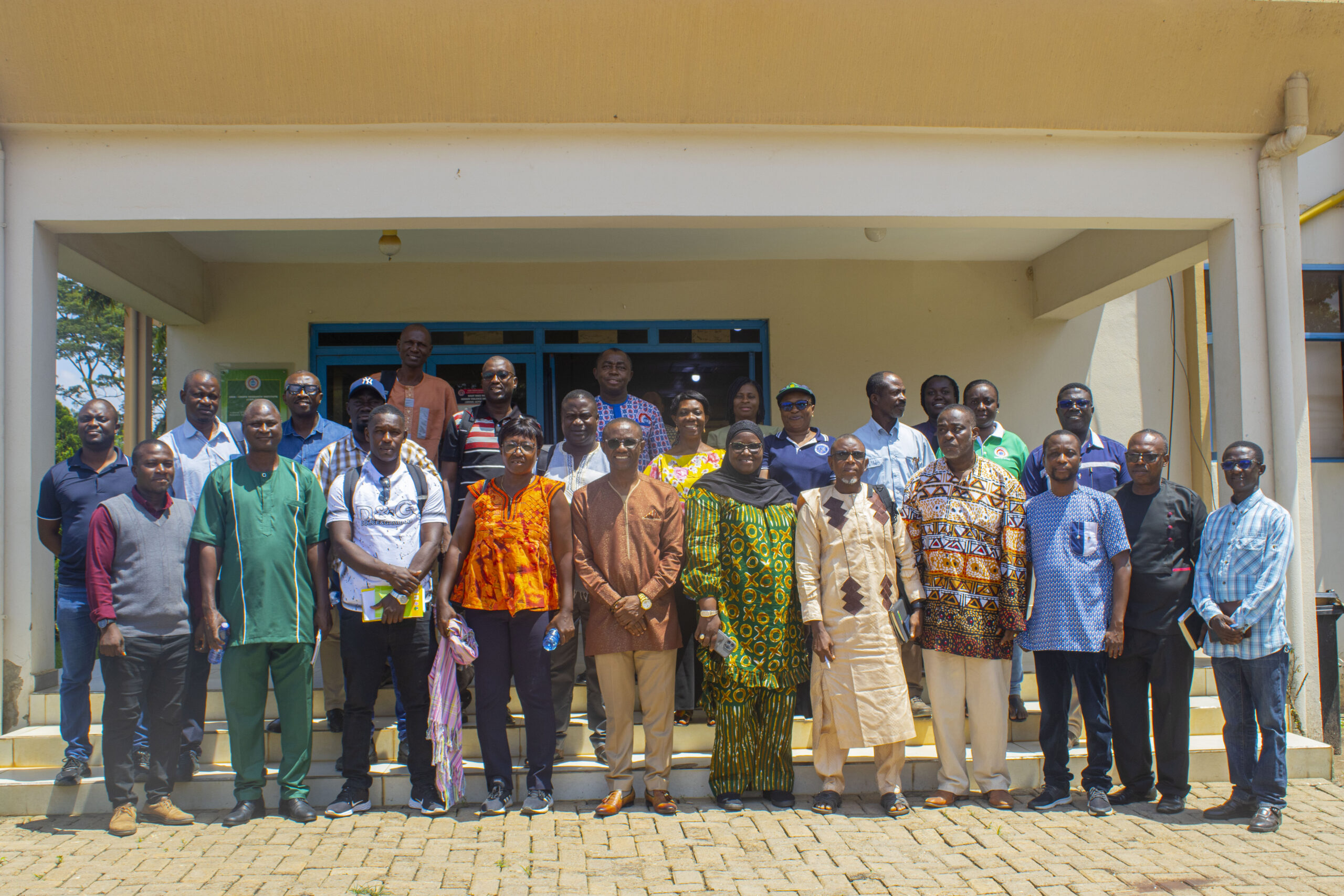GIRAV PROJECT: GAMBIA LOOKS TO GHANA’S CSIR-CRI FOR RESEARCH PARTNERSHIP
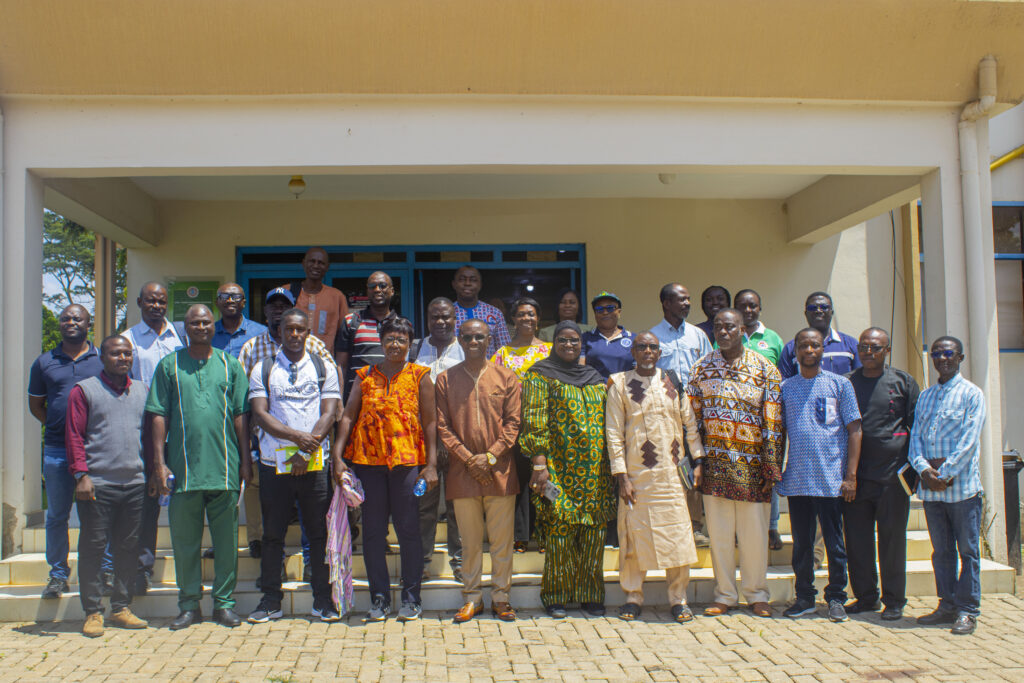
A high-powered delegation from the National Agricultural Research Institute (NARI) in The Gambia and the West and Central African Council for Agricultural Research and Development (CORAF) has paid a two-day working visit to the Council for Scientific and Industrial Research–Crops Research Institute (CSIR-CRI) in Kumasi. The visit, held from September 23–24, 2025, aimed to strengthen the capacities of Gambian scientists, the National Seed Secretariat (NSS), local entrepreneurs, and mechanical technicians, while identifying areas of collaboration between the Institutions.
The team was drawn from four Gambian Institutions—NARI, NSS, the Department of Agriculture, and the Private Sector.

On 23rd September, the team visited the CSIR-CRI Station at Kwadaso, where they interacted with the Station Manager and tomato breeder, Dr. Michael Osei Kwabena and other Research Scientists. They toured the horticulture screen house, tree crop and taro fields, the entomology laboratory, and the seed processing unit. The delegation expressed interest in the facilities but also noted areas for improvement, particularly in seed handling and storage practices.
Welcoming the delegation at Fumesua, the Director of CSIR-Crops Research Institute, Professor Maxwell Darko Asante, delivered a presentation on the Institute’s vision, mandate, achievements, facilities, and ongoing programmes. He highlighted CRI’s pioneering role in agricultural research, noting that all CSIR agricultural Institutes stemmed from CRI.
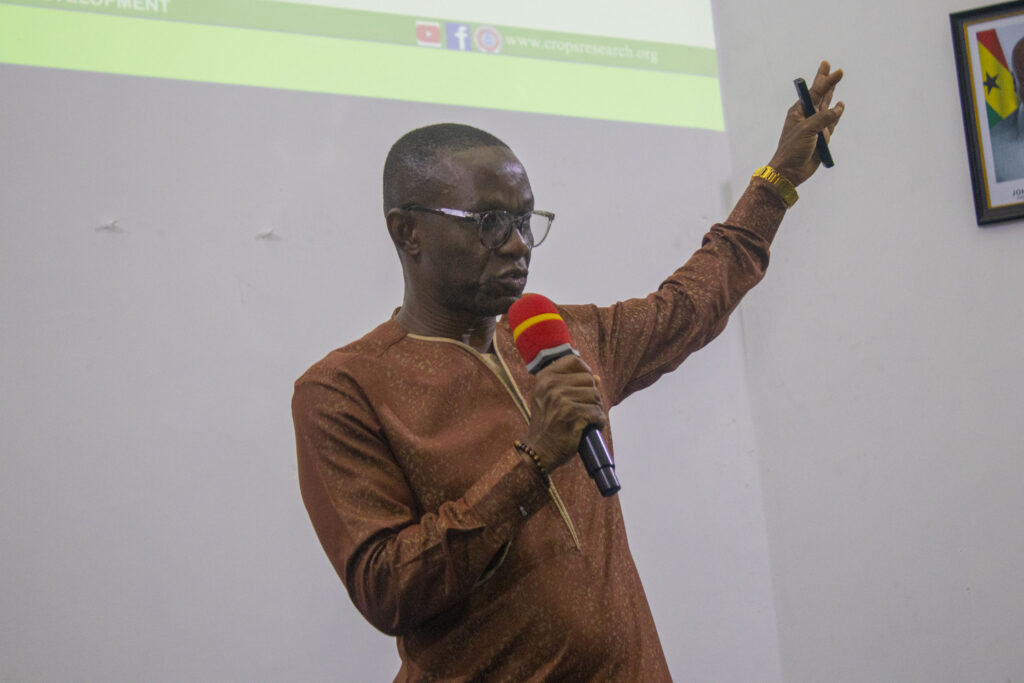
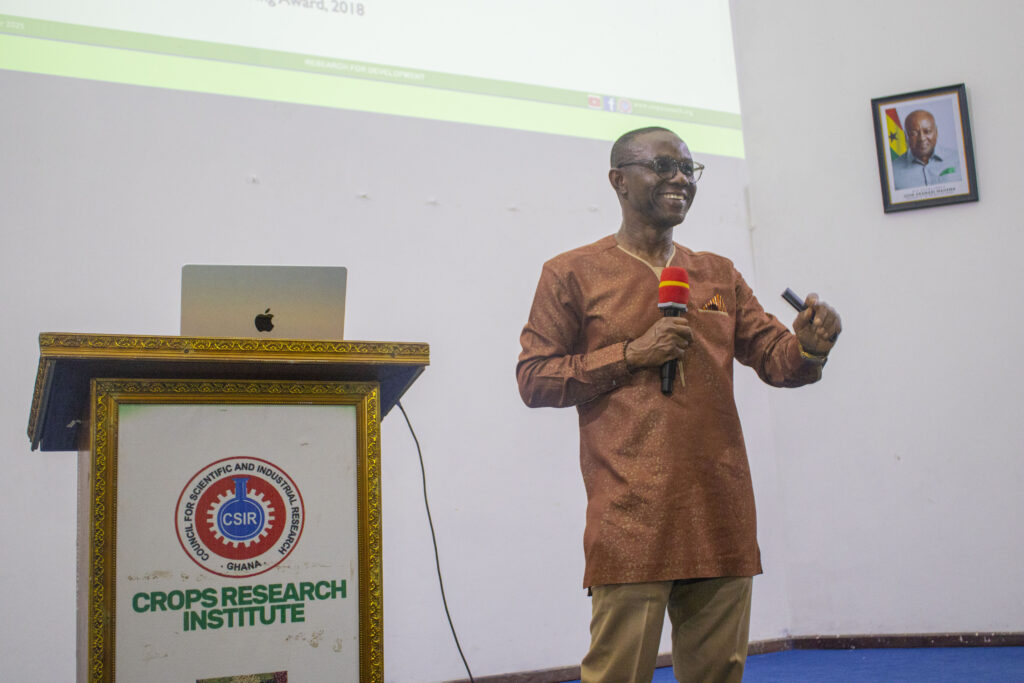
“We have done a lot of breeding work on crops and released several improved varieties that are included in the National Catalogue,” Prof. Asante said. “We also have strong agronomic packages and adopt an integrated approach to research.” He encouraged the visiting Institutions to partner with CSIR-CRI in research and capacity-building initiatives.
Prof. Asante also introduced the CSIR-College of Science and Technology, which offers postgraduate programmes up to the PhD level. He urged the Gambian delegation to encourage their staff to enroll, particularly under scholarship schemes, emphasizing the College’s innovative and practical approach to teaching backed by CRI’s extensive breeding and laboratory facilities.
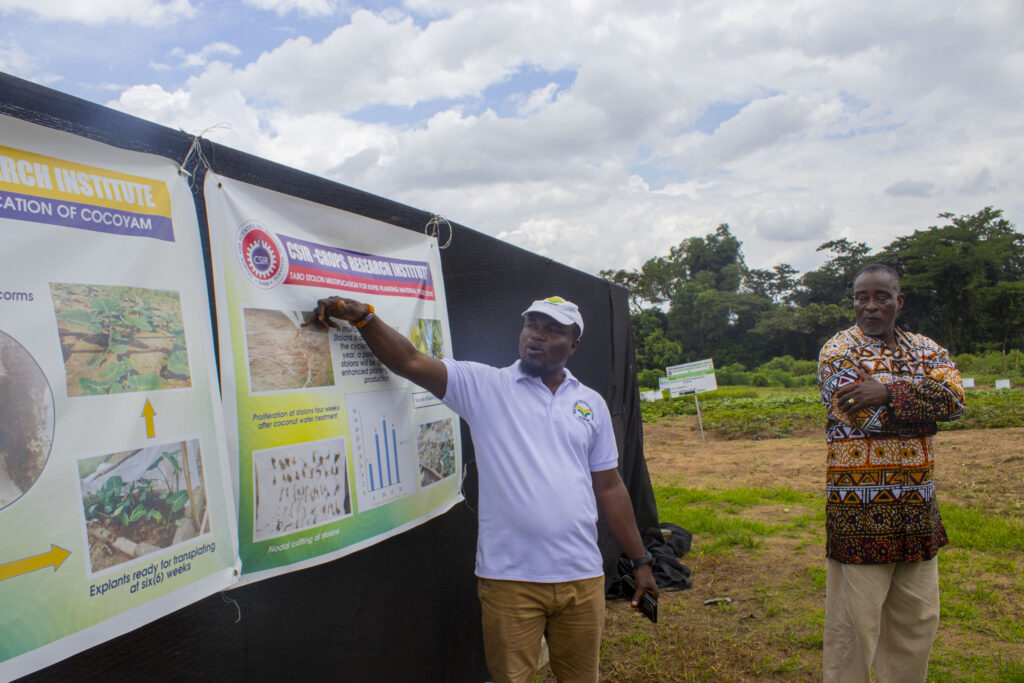
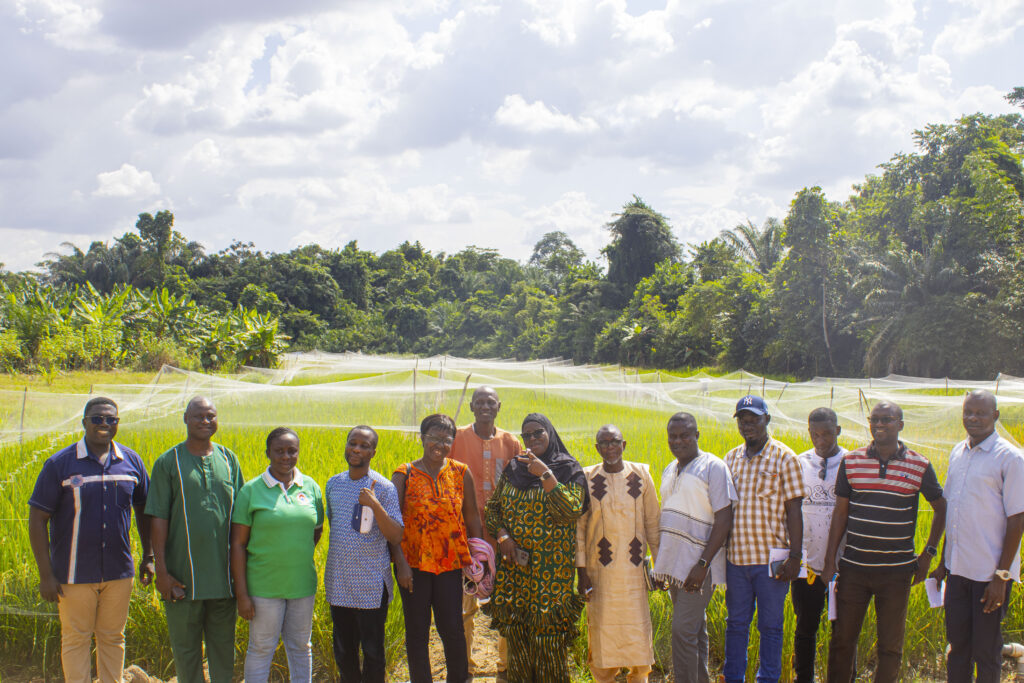
Leading the delegation, Dr. Caroline Makamto Sobgui, Senior Scaling Specialist at CORAF, explained that the visit was tied to the World Bank-sponsored Gambia Inclusive and Resilient Agricultural Value Chain Development Project (GIRAV). She said Ghana’s experience would provide valuable lessons for improving the implementation of the GIRAV project.
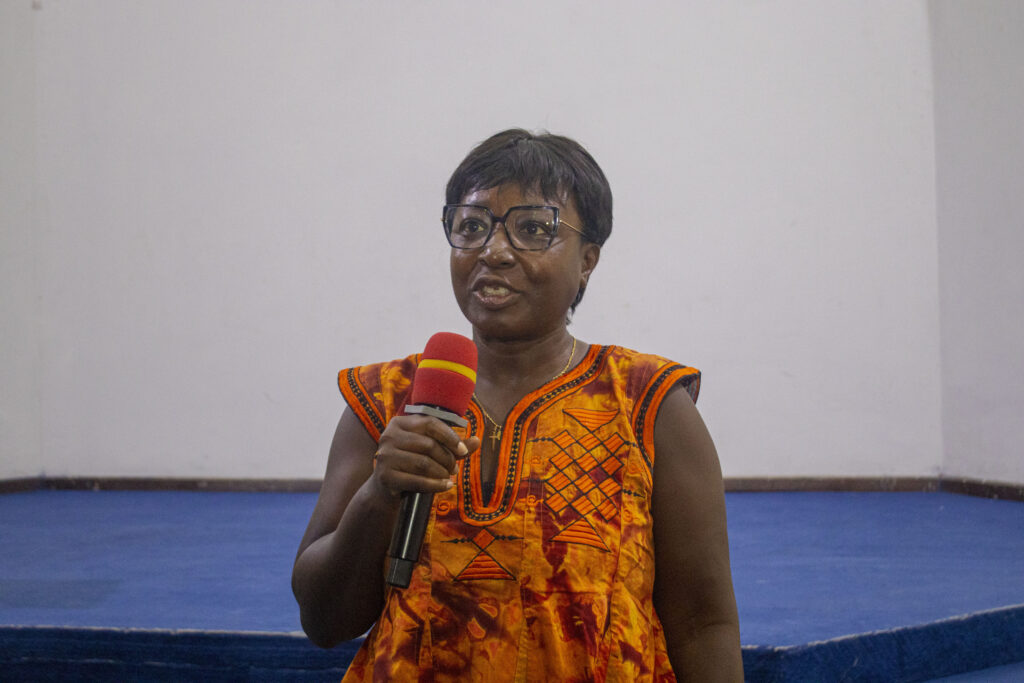
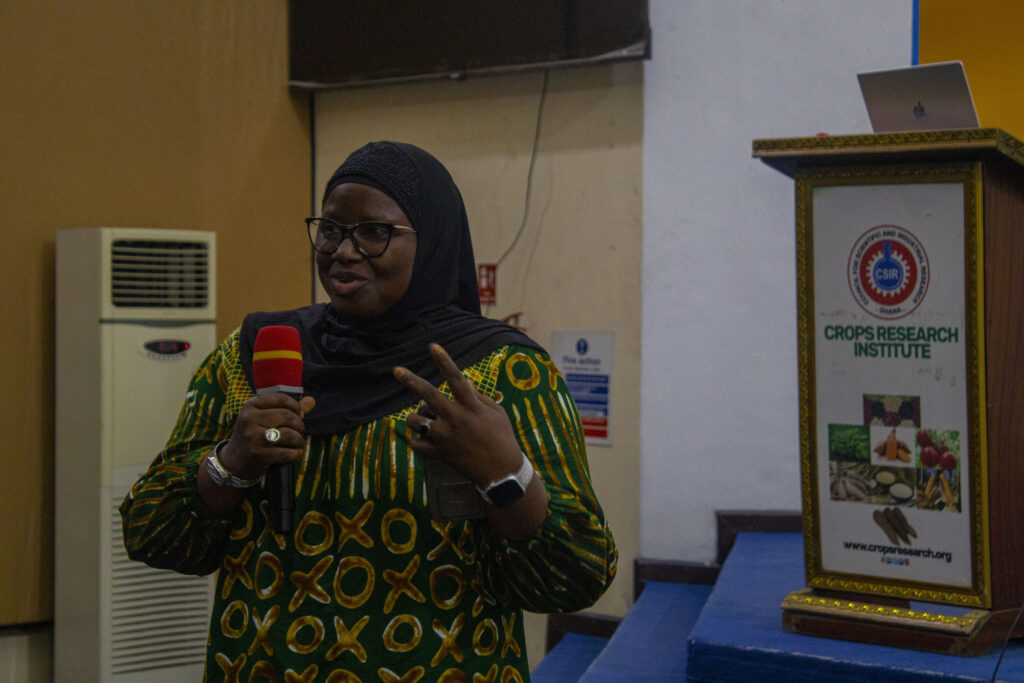
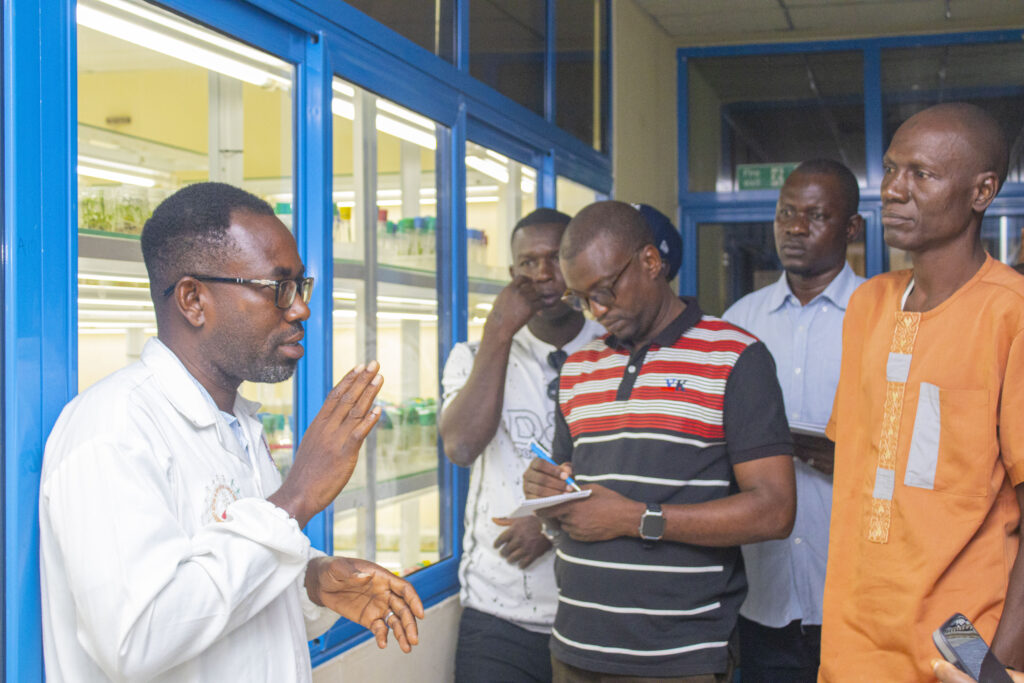
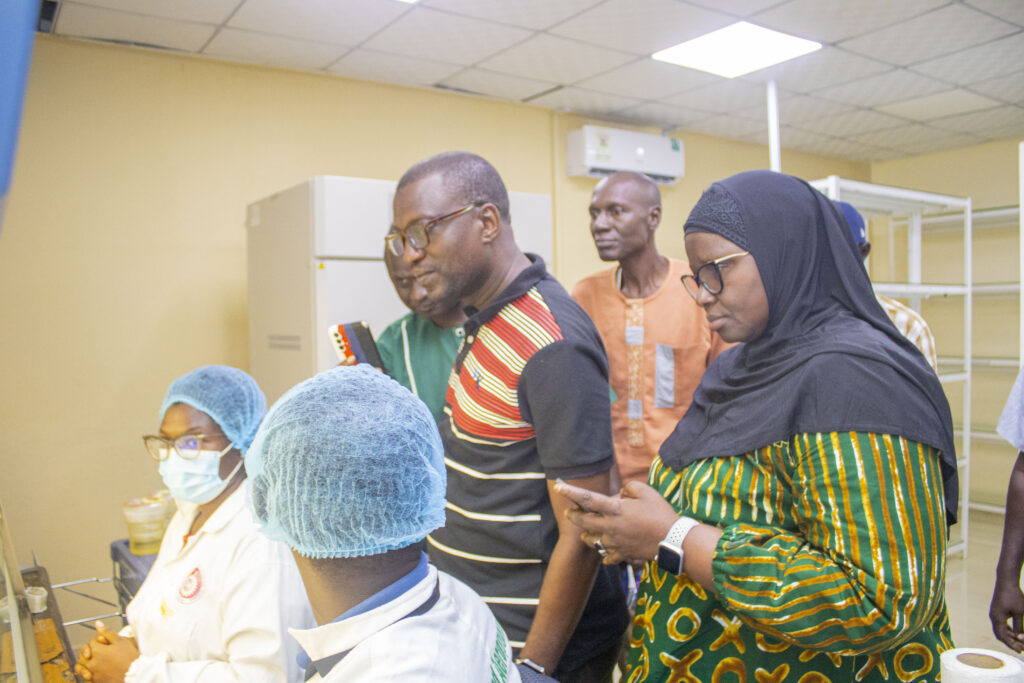
“CRI is the best Institute to collaborate with on the GIRAV project, given its track record in technology development under the West African Agricultural Productivity Programme (WAAPP), where CRI served as the Centre of Excellence for Root and Tuber Crops,” Dr. Sobgui noted. “We want CRI to support the GIRAV project in terms of facilitation, technology development, and capacity building.”
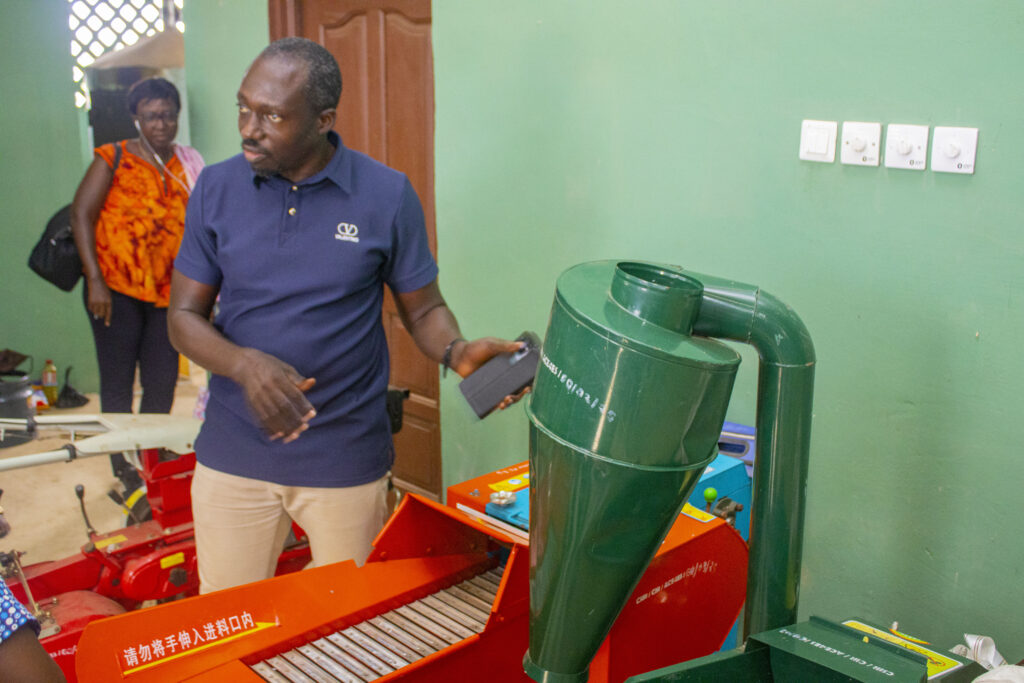
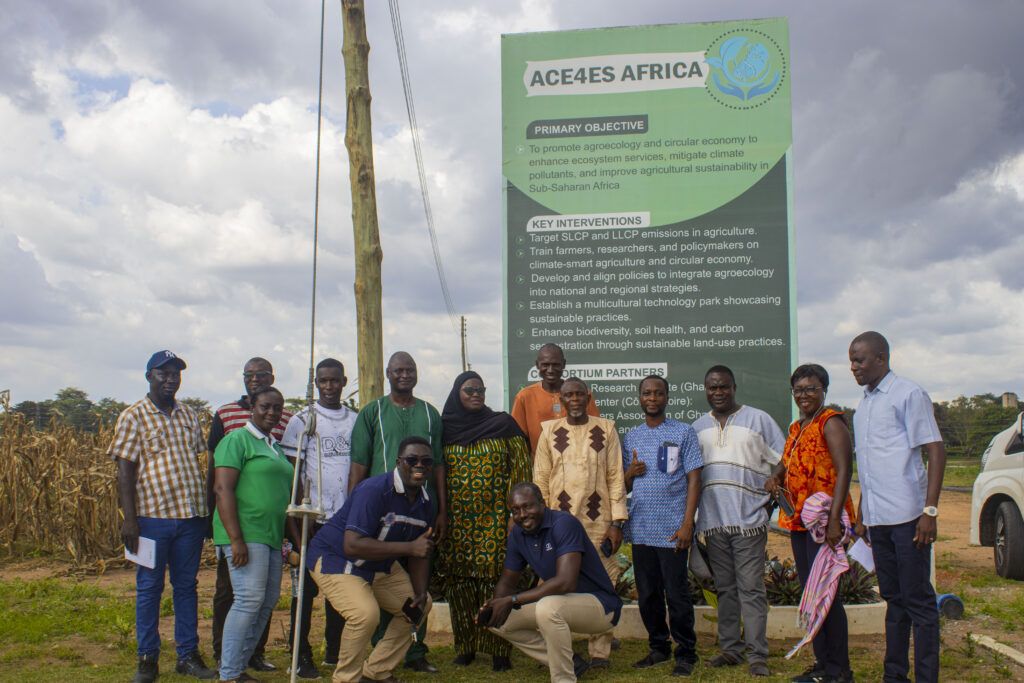
During the visit at Fumesua, the delegation toured CRI’s Tissue Culture and Seed Laboratories, as well as key research facilities. These included the CSIR-CRI Technology Park, Rice Breeding Field, Agroecology and Circular Economy for Ecosystem Services (ACE4ES) Multipurpose Technology Park, Aquaponics Food-Based System.
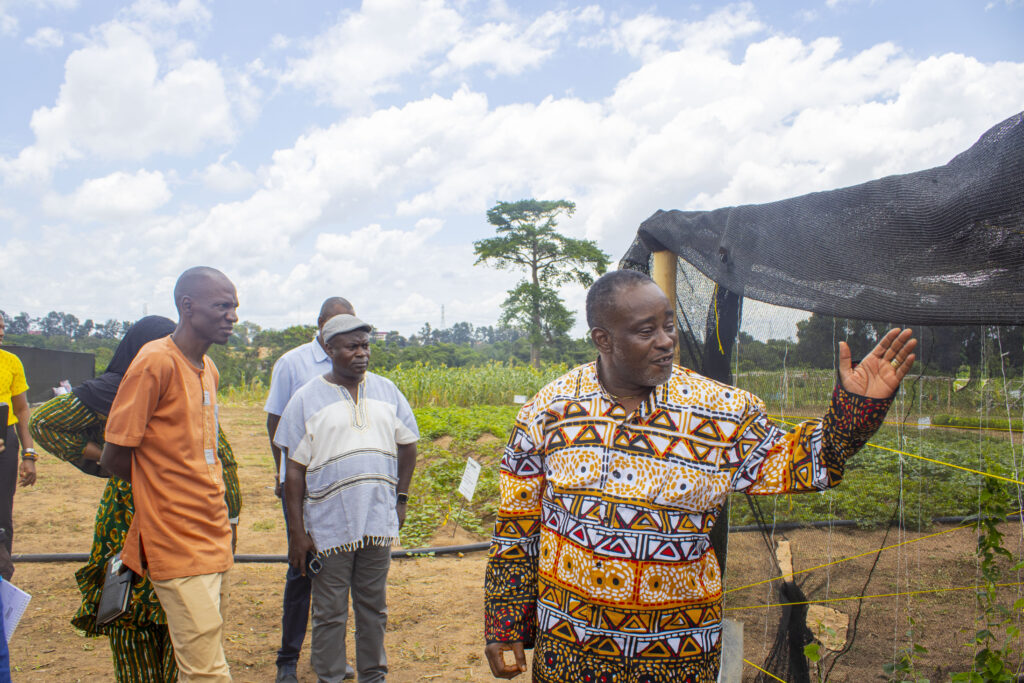
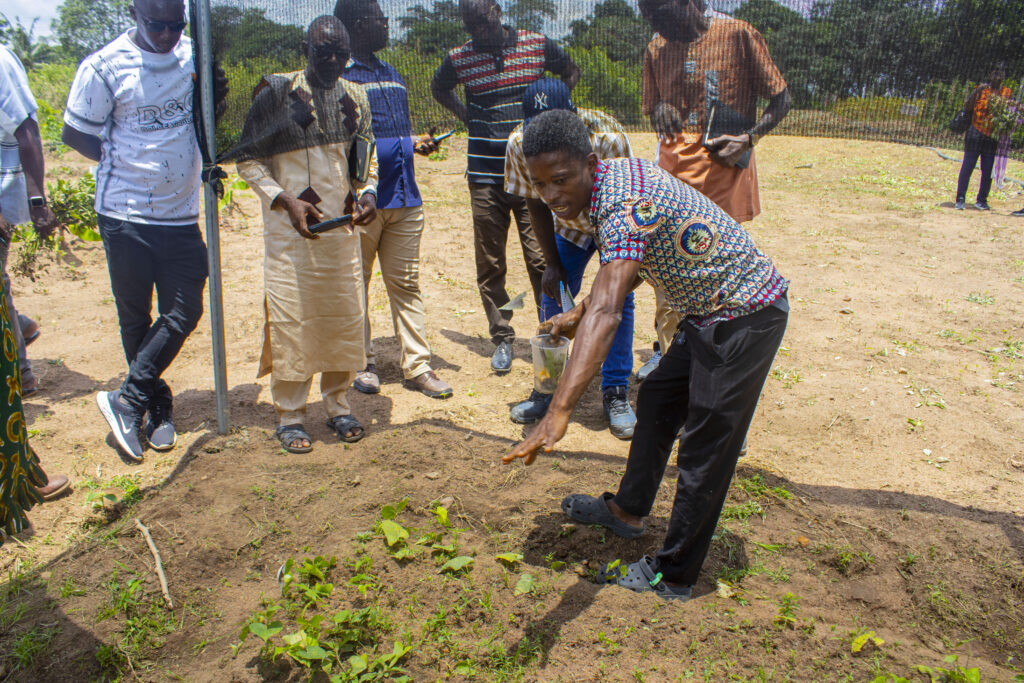
The visit is expected to pave the way for deeper collaboration between Ghana and The Gambia in agricultural research, technology transfer, and human capacity development.
Authors: Linda Agyeman, Dr. Charles Afriyie Debrah
Publisher: Enoch Bobie Agyemang

